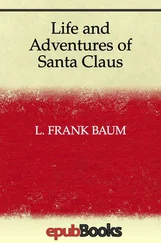Charles Dickens - Life And Adventures Of Martin Chuzzlewit
Здесь есть возможность читать онлайн «Charles Dickens - Life And Adventures Of Martin Chuzzlewit» весь текст электронной книги совершенно бесплатно (целиком полную версию без сокращений). В некоторых случаях можно слушать аудио, скачать через торрент в формате fb2 и присутствует краткое содержание. Жанр: Классическая проза, на английском языке. Описание произведения, (предисловие) а так же отзывы посетителей доступны на портале библиотеки ЛибКат.
- Название:Life And Adventures Of Martin Chuzzlewit
- Автор:
- Жанр:
- Год:неизвестен
- ISBN:нет данных
- Рейтинг книги:5 / 5. Голосов: 1
-
Избранное:Добавить в избранное
- Отзывы:
-
Ваша оценка:
- 100
- 1
- 2
- 3
- 4
- 5
Life And Adventures Of Martin Chuzzlewit: краткое содержание, описание и аннотация
Предлагаем к чтению аннотацию, описание, краткое содержание или предисловие (зависит от того, что написал сам автор книги «Life And Adventures Of Martin Chuzzlewit»). Если вы не нашли необходимую информацию о книге — напишите в комментариях, мы постараемся отыскать её.
Life And Adventures Of Martin Chuzzlewit — читать онлайн бесплатно полную книгу (весь текст) целиком
Ниже представлен текст книги, разбитый по страницам. Система сохранения места последней прочитанной страницы, позволяет с удобством читать онлайн бесплатно книгу «Life And Adventures Of Martin Chuzzlewit», без необходимости каждый раз заново искать на чём Вы остановились. Поставьте закладку, и сможете в любой момент перейти на страницу, на которой закончили чтение.
Интервал:
Закладка:
“I mean,” said Jonas, stooping down over the body, “that I never heard you were his father, or had any particular reason to care much about him. Halloa. Hold up there!”
But the boy was past holding up, or being held up, or giving any other sign of life than a faint and fitful beating of the heart. After some discussion the driver mounted the horse which had been least injured, and took the lad in his arms as well as he could; while Montague and Jonas, leading the other horse, and carrying a trunk between them, walked by his side towards Salisbury.
“You'd get there in a few minutes, and be able to send assistance to meet us, if you went forward, post-boy,” said Jonas. “Trot on!”
“No, no,” cried Montague; “we'll keep together.”
“Why, what a chicken you are! You are not afraid of being robbed; are you?” said Jonas.
“I am not afraid of anything,” replied the other, whose looks and manner were in flat contradiction to his words. “But we'll keep together.”
“You were mighty anxious about the boy, a minute ago,” said Jonas. “I suppose you know that he may die in the meantime?”
“Aye, aye. I know. But we'll keep together.”
As it was clear that he was not to be moved from this determination, Jonas made no other rejoinder than such as his face expressed; and they proceeded in company. They had three or four good miles to travel; and the way was not made easier by the state of the road, the burden by which they were embarrassed, or their own stiff and sore condition. After a sufficiently long and painful walk, they arrived at the Inn; and having knocked the people up (it being yet very early in the morning), sent out messengers to see to the carriage and its contents, and roused a surgeon from his bed to tend the chief sufferer. All the service he could render, he rendered promptly and skillfully. But he gave it as his opinion that the boy was labouring under a severe concussion of the brain, and that Mr Bailey's mortal course was run.
If Montague's strong interest in the announcement could have been considered as unselfish in any degree, it might have been a redeeming trait in a character that had no such lineaments to spare. But it was not difficult to see that, for some unexpressed reason best appreciated by himself, he attached a strange value to the company and presence of this mere child. When, after receiving some assistance from the surgeon himself, he retired to the bedroom prepared for him, and it was broad day, his mind was still dwelling on this theme,
“I would rather have lost,” he said, “a thousand pounds than lost the boy just now. But I'll return home alone. I am resolved upon that. Chuzzlewit shall go forward first, and I will follow in my own time. I'll have no more of this,” he added, wiping his damp forehead. “Twenty-four hours of this would turn my hair grey!”
After examining his chamber, and looking under the bed, and in the cupboards, and even behind the curtains, with unusual caution (although it was, as has been said, broad day), he double-locked the door by which he had entered, and retired to rest. There was another door in the room, but it was locked on the outer side; and with what place it communicated, he knew not.
His fears or evil conscience reproduced this door in all his dreams. He dreamed that a dreadful secret was connected with it; a secret which he knew, and yet did not know, for although he was heavily responsible for it, and a party to it, he was harassed even in his vision by a distracting uncertainty in reference to its import. Incoherently entwined with this dream was another, which represented it as the hiding-place of an enemy, a shadow, a phantom; and made it the business of his life to keep the terrible creature closed up, and prevent it from forcing its way in upon him. With this view Nadgett, and he, and a strange man with a bloody smear upon his head (who told him that he had been his playfellow, and told him, too, the real name of an old schoolmate, forgotten until then), worked with iron plates and nails to make the door secure; but though they worked never so hard, it was all in vain, for the nails broke, or changed to soft twigs, or what was worse, to worms, between their fingers; the wood of the door splintered and crumbled, so that even nails would not remain in it; and the iron plates curled up like hot paper. All this time the creature on the other side—whether it was in the shape of man, or beast, he neither knew nor sought to know— was gaining on them. But his greatest terror was when the man with the bloody smear upon his head demanded of him if he knew this creatures name, and said that he would whisper it. At this the dreamer fell upon his knees, his whole blood thrilling with inexplicable fear, and held his ears. But looking at the speaker's lips, he saw that they formed the utterance of the letter “J'; and crying out aloud that the secret was discovered, and they were all lost, he awoke.
Awoke to find Jonas standing at his bedside watching him. And that very door wide open.
As their eyes met, Jonas retreated a few paces, and Montague sprang out of bed.
“Heyday!” said Jonas. “You're all alive this morning.”
“Alive!” the other stammered, as he pulled the bell-rope violently. “What are you doing here?”
“It's your room to be sure,” said Jonas; “but I'm almost inclined to ask you what YOU are doing here? My room is on the other side of that door. No one told me last night not to open it. I thought it led into a passage, and was coming out to order breakfast. There's —there's no bell in my room.”
Montague had in the meantime admitted the man with his hot water and boots, who hearing this, said, yes, there was; and passed into the adjoining room to point it out, at the head of the bed.
“I couldn't find it, then,” said Jonas; “it's all the same. Shall I order breakfast?”
Montague answered in the affirmative. When Jonas had retired, whistling, through his own room, he opened the door of communication, to take out the key and fasten it on the inner side. But it was taken out already.
He dragged a table against the door, and sat down to collect himself, as if his dreams still had some influence upon his mind.
“An evil journey,” he repeated several times. “An evil journey. But I'll travel home alone. I'll have no more of this.”
His presentiment, or superstition, that it was an evil journey, did not at all deter him from doing the evil for which the journey was undertaken. With this in view, he dressed himself more carefully than usual to make a favourable impression on Mr Pecksniff; and, reassured by his own appearance, the beauty of the morning, and the flashing of the wet boughs outside his window in the merry sunshine, was soon sufficiently inspirited to swear a few round oaths, and hum the fag-end of a song.
But he still muttered to himself at intervals, for all that: “I'll travel home alone!”
CHAPTER FORTY-THREE
HAS AN INFLUENCE ON THE FORTUNES OF SEVERAL PEOPLE. MR PECKSNIFF IS EXHIBITED IN THE PLENITUDE OF POWER; AND WIELDS THE SAME WITH FORTITUDE AND MAGNANIMITY
On the night of the storm, Mrs Lupin, hostess of the Blue Dragon, sat by herself in her little bar. Her solitary condition, or the bad weather, or both united, made Mrs Lupin thoughtful, not to say sorrowful. As she sat with her chin upon her hand, looking out through a low back lattice, rendered dim in the brightest day-time by clustering vine-leaves, she shook her head very often, and said, “Dear me! Oh, dear, dear me!”
It was a melancholy time, even in the snugness of the Dragon bar. The rich expanse of corn-field, pasture-land, green slope, and gentle undulation, with its sparkling brooks, its many hedgerows, and its clumps of beautiful trees, was black and dreary, from the diamond panes of the lattice away to the far horizon, where the thunder seemed to roll along the hills. The heavy rain beat down the tender branches of vine and jessamine, and trampled on them in its fury; and when the lightning gleamed it showed the tearful leaves shivering and cowering together at the window, and tapping at it urgently, as if beseeching to be sheltered from the dismal night.
Читать дальшеИнтервал:
Закладка:
Похожие книги на «Life And Adventures Of Martin Chuzzlewit»
Представляем Вашему вниманию похожие книги на «Life And Adventures Of Martin Chuzzlewit» списком для выбора. Мы отобрали схожую по названию и смыслу литературу в надежде предоставить читателям больше вариантов отыскать новые, интересные, ещё непрочитанные произведения.
Обсуждение, отзывы о книге «Life And Adventures Of Martin Chuzzlewit» и просто собственные мнения читателей. Оставьте ваши комментарии, напишите, что Вы думаете о произведении, его смысле или главных героях. Укажите что конкретно понравилось, а что нет, и почему Вы так считаете.









